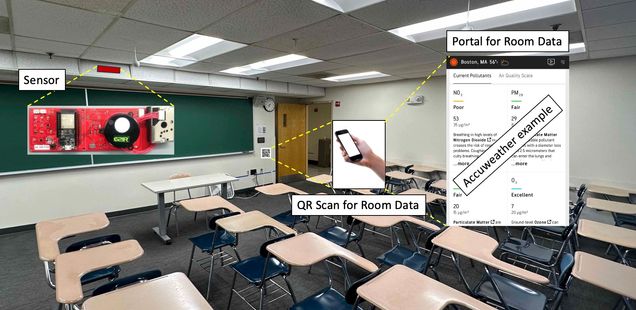Pilot Indoor Air Quality Sensor and Portal
The lab is involved with the development of indoor smart spaces using low cost wireless microcontrollers and sensors. Motivated originally by the desire to track individuals in indoor spaces for energy-efficient lighting, we continue to explore ways to improve health, productivity, and energy efficiency in these spaces.
We’ve recently received support from the Boston University Institute for Global Sustainability (IGS), in collaboration with BU Sustainability and the Office of Research to deploy a pilot for an indoor air quality sensor and portal. This work leverages a device developed in association with colleagues at the BU School of Public Health. The grant is highlighted at the Campus Climate Lab research site.
The project, entitled “Pilot BU Indoor Air Quality Sensor and Portal,” is by the team of Marybel Boujaoude, Yangyang Zhang, and Thomas Little for the period of October, 2023-May 2024.
Project Abstract: In this project we are piloting a BU-developed wireless indoor air quality sensor system in eight different classrooms on campus. The goals of the pilot are to (a) evaluate the prototype system, (b) provide real-time data on current air quality in selected classrooms while collecting occupant feedback, (c) compare indoor air quality with outdoor conditions, and (d) assess the potential to both improve indoor air quality and improve energy efficiency under changing classroom occupancy. The air quality data will be accessed via portal reached by scanning a QR code in each classroom.

Pilot Scenario for Indoor Air Quality Sensor and Portal
The v1.0 portal is accessible here.